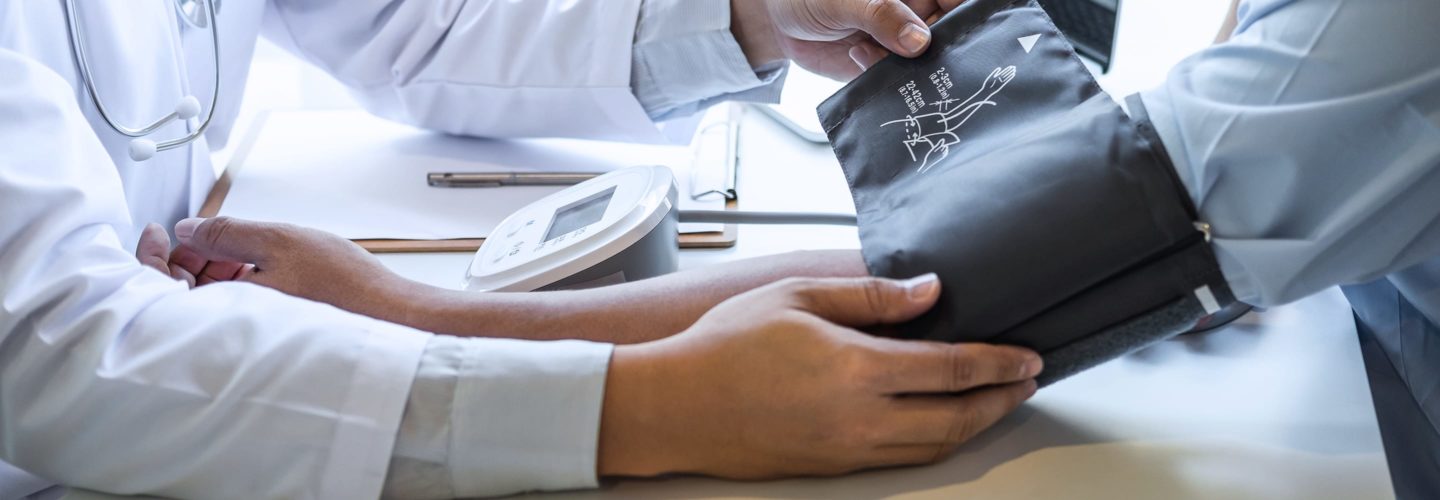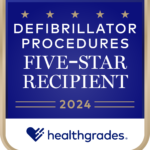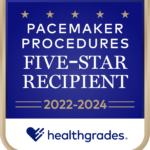Cutting-edge technology and innovative therapies
Our Heart Rhythm Center is committed to providing you with individualized and specialized treatment plans and utilizing advanced technology and innovative therapies. Cardiologists at the Maimonides Heart Rhythm Center specialize in the electrical activity of the heart (electrophysiologists) and provide detection, prevention, and treatment services for patients with abnormal heart rhythm (arrhythmia).
Maimonides has become a leading institution for advanced heart rhythm treatments in the Tri-State region, performing over 215 Hybrid Atrial Fibrillation procedures
Watch how Paulo put his trust in Maimonides
We’re here for you before and after treatment
If you’re experiencing arrhythmia symptoms, you probably have questions. What is an arrhythmia and what does it mean for your health? What are the causes and what treatments are available? Is an arrhythmia the same as heart disease?
Our heart specialists are here for you. We will answer all your questions and teach you everything we know about improving symptoms of arrhythmia.
Atrial Fibrillation (AFib)
AFib is marked by an irregular heartbeat that occurs in the upper chambers of the heart (the atria). When the heart is in AFib, it may not pump enough oxygen-rich blood to the body, increasing the risk for heart failure. If untreated, this greatly increases the risk of stroke.
Signs and symptoms of AFib include:
- Chest pain
- Lightheadedness or fainting
- Palpitations or racing heart
- Shortness of breath
There are different types of AFibs. Episodes can last for less than a day or can be ongoing. Combining cardiothoracic surgery and electrophysiology, the Heart Rhythm Center offers an array of treatments for AFib.
Our Heart Rhythm Center has actively participated in the National Institutes of Health (NIH) and Food and Drug Administration (FDA) clinical trials for over 20 years, paving the way for the newest, most innovative therapies
We offer a variety of treatment options depending on the type of AFib
Medication
Cardiac medication is used to control the heart rate and heart rhythm. Blood thinners are also prescribed to reduce the risk of stroke by preventing the formation of blood clots.
Electrical cardioversion
This procedure involves shocking the heart with an external device applied to the chest, which can convert the heart back into a normal rhythm.
Catheter ablation
This procedure involves passing a specialized catheter through the femoral vein into the heart. The electrode at the tip of the catheter sends out radio waves that create heat, called radiofrequency ablation, to certain areas of the heart. This process can prevent AFib from recurring and relieve symptoms.
Convergent hybrid ablation
This integrated approach involves placing a small opening below the breastbone, where the cardiac surgeon creates a series of linear lesions on the surface of the heart using radiofrequency ablation. The electrophysiologist then threads a catheter through the femoral vein reaching the inside of the heart to isolate the pulmonary veins, thereby completing the ablation pattern.
The cardiac surgeon will also place a Left Atrial Appendage Occlusion (LAAO) clip directly on the left atrial appendage to prevent clots from forming and reducing the risk for stroke.
Watchman™ Left Atrial Appendage (LAA) closure implant
This procedure involves passing a specialized catheter through the femoral vein into the heart. The cardiologist then guides the Watchman device through the catheter tube into the LAA to permanently close off this part of the heart, which will prevent clots from escaping, thus reducing the risk for stroke and eliminating the need for long term blood thinner medication.
Ventricular fibrillation (VF)
VF is when the heart quivers instead of pumping at a normal rate due to disorganized electrical activity within the lower chambers of the heart (the ventricles). VF is a life-threatening heart rhythm that results in cardiac arrest.
Contact emergency medical services if you experience these symptoms:
- Chest pain
- Fainting
- Loss of consciousness
- Rapid heartbeat (tachycardia)
- Shortness of breath
VF requires emergency treatment such as CPR or defibrillation. Our heart rhythm specialists provide prevention support to patients after a heart attack/heart disease.
Ventricular tachycardia (VT)
VT is when your heart rate is higher than 100 beats per minute. Abnormal electrical signals to the heart can cause the lower chambers of the heart (the ventricles) to beat too fast. This condition is usually related to advanced heart failure or other heart diseases.
Signs and symptoms of VT include:
- Chest pain
- Lightheadedness or fainting
- Palpitations or racing heart
- Shortness of breath
Our heart rhythm specialists provide prevention support to patients with heart disease.
Call 718-283-7111 to make an appointment with a heart rhythm specialist
Meet Our Team
Our Featured Team Members
Jini Samuel, PA-C
Heart Rhythm Center Coordinator











